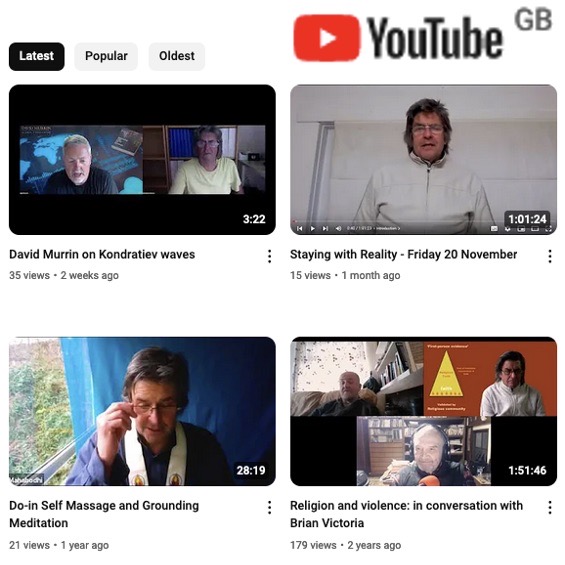Below is an excerpt from my forthcoming book…
© Mahabodhi Burton
4 minute read
This excerpt is from Chapter 4: ‘Postmodernism and the academic mindset’ and follows on from Critical Race Theory.
Cultural Marxism
Next, Lindsay goes into the history of the development of Cultural Marxism: we had a Russian Revolution in 1917 but the revolution did not spread to Europe: which confused the Marxists there. Antonio Gramsci:[1] founding member and one-time leader of the Italian Communist Party, and George Lukacs: the Hungarian Marxist philosopher who published History and Class Consciousness[2] after the failure of the revolution in Hungary in 1919, wrote about what became Cultural Marxism:[3] ‘the idea that we have to enter the cultural institutions in order to change them from within, because Western culture has something about it that’s repelling socialism. So we have to go inside and change the culture to make it socialist.’[4]
Cultural Marxism evolved out of economic Marxism, Lindsay says, ‘like a virus adapted to infect a new host.’ Marxist revolution had worked in agriculturally-driven feudal societies: it had taken over in Russia, and later in China: but when it came to actual capitalist nations there seemed to be a hurdle, because, as Max Horkheimer proposed, Marx was wrong about one thing: capitalism does not immiserate the worker, it allows him to build a better life. Horkheimer thought the Revolution wouldn’t happen with guns, but through cultural infiltration:
‘… rather it will happen incrementally, year by year, generation by generation. We will gradually infiltrate their educational institutions and their political offices, transforming them slowly into Marxist entities as we move towards universal egalitarianism. So I developed the critical theory because it is not possible to articulate the vision of a good society on the terms of the existing society, so critical Marxism criticizes the entirety of the existing society, everything is somehow needing to be subjected to Marxist conflict analysis.’[5]
Several Germans from the Frankfurt School started to study this phenomenon in more depth and evolved the idea further: into what’s called Critical Theory.
‘Max Horkheimer first defined critical theory in his 1937 essay “Traditional and Critical Theory”, as a social theory oriented toward critiquing and changing society as a whole, in contrast to traditional theory oriented only toward understanding or explaining it. Wanting to distinguish critical theory as a radical, emancipatory form of Marxist philosophy, Horkheimer critiqued both the model of science put forward by logical positivism, and what he and his colleagues saw as the covert positivism[6] and authoritarianism of orthodox Marxism and Communism.’[7]
Thus, there evolved what’s called Critical Marxism: Horkenheim assumes that ‘the weak’ have no choice but to submit : to whatever ‘hierarchy / structure’ is around:
‘Although most people never overcome the habit of berating the world for their difficulties, those who are too weak to make a stand against reality have no choice but to obliterate themselves by identifying with it. They are never rationally reconciled to civilization. Instead, they bow to it, secretly accepting the identity of reason and domination, of civilization and the ideal.
‘… Their whole life is a continuous effort to suppress and abase nature, inwardly or outwardly, and to identify themselves with its more powerful surrogates—the race, fatherland, leader, cliques, and tradition. For them, all these words mean the same thing—the irresistible reality that must be honoured and obeyed. However, their own natural impulses, those antagonistic to the various demands of civilization, lead a devious undercover life within them.’[8]
I am sure this does happen, but it happens under any tyranny: today conservatives cower beneath ‘the tyranny of woke;’ we see in these ideas the seeds of the epidemic of victimhood, which has swept the Western world in the last decade. Such sentiments overlook the reality that civilisation can also be beneficial: for instance, a wisdom tradition like Buddhism. And where is the place for encouraging self-responsibility?
When the Second World war broke out and the Frankfurt School came to America, Lindsay proposes, that was the equivalent of the Wuhan Institute of Virology doing gain of function research on the (Marxist) virus.
‘And Herbert Marcuse, writing in the 1960s, said extremely clearly, this: writing in 1969, not only did he say capitalism delivers the goods, gives people a good life, makes them wealthy and comfortable and happy, he also said that the working class is no longer going to be the base of the revolution because of these things. In other words, we don’t have to be responsible to the working class anymore, which opens up the ability for Marxists who are seeking power to make friends with the corporations. The bosses are no longer the enemy. They’re an opportunity because the working class is irrelevant.
‘He said the energy is somewhere else. He said it’s in the racial minorities, the sexual minorities, the feminists, the outsiders. That’s who he said have the energy for a Marxist revolution in the West, not the working class. And so Marxism was able to evolve to abandon the working class.’[9]
Does this explain a lot to you?
The chapter goes on to explore The World Economic Forum.
[1] ‘Gramsci is best known for his theory of cultural hegemony, which describes how the state and ruling capitalist class — the bourgeoisie — use cultural institutions to maintain power in capitalist societies. In Gramsci’s view, the bourgeoisie develops a hegemonic culture using ideology rather than violence, economic force, or coercion.’ Antonio Gramsci. Wikipedia. Accessed 26 December 2023.
https://en.wikipedia.org/wiki/Antonio_Gramsci
[2] ‘Written between 1919 and 1922 and published in 1923, Lukacs’s collection of essays History and Class Consciousness contributed to debates concerning Marxism and its relation to sociology, politics and philosophy. With this work, Lukacs initiated the current of thought that came to be known as “Western Marxism.” At Lukacs’s direction, there was no reprinting in his lifetime, making it rare and hard to acquire before 1968. Its return to prominence was aided by the social movements of the 1960s. The most important essay in Lukács’s book introduces the conceptof “reification”. In capitalist societies, human properties, relations and actions are transformed into properties, relations and actions of man-produced things, which become independent of man and govern his life. These man-created things are then imagined to be originally independent of man. Moreover, human beings are transformed into thing-like beings that do not behave in a human way but according to the laws of the thing-world. This essay is notable for reconstructing aspects of Marx’s theory of alienation before the publication of the Economic and Philosophical Manuscripts of 1844 — the work in which Marx most clearly expounds the theory.’ György Lukács. Wikipedia. Accessed 26 December 2023.
https://en.wikipedia.org/wiki/Gy%C3%B6rgy_Luk%C3%A1cs
[3] From the 1920s, its exponents have called it Western Marxism. Lindsay says, ‘you aren’t allowed to talk about Cultural Marxism now, they’ve categorized this as a conspiracy theory, they say that it is anti-Semitic,’ plainly a ploy to conceal its true nature: see Wikipedia entry for ‘Cultural Marxism conspiracy theory.’ Wikipedia today is a good source for neutral topics but generally unreliable when it comes to politics.
[4] ‘James Lindsay SHATTERS Woke Ideology: EU Parliament Speech. Rattlesnake TV. YouTube.
https://www.youtube.com/watch?v=Aviyl1eiC1s
Permission has been sought from James Lindsay on multiple occasions to use the transcript of his European Parliament talk.
Below is the transcript of Rattlesnake TV’s video which I have consent to share:
https://archive.org/details/james-lindsay-shatters-woke-ideology_202312
[5] Ibid.
[6] Positivism is a philosophical school that holds that all genuine knowledge is either true by definition or positive—meaning a posteriori facts derived by reason and logic from sensory experience. Other ways of knowing, such as intuition, introspection, or religious faith, are rejected or considered meaningless.
[7] ‘Critical Theory.’ Wikipedia. https://en.wikipedia.org/wiki/Critical_theory Accessed 19 June 2023.
[8] Max Horkheimer. (2013) Eclipse of Reason. Bloomsbury. p79-80.
[9] ‘James Lindsay SHATTERS Woke Ideology: EU Parliament Speech.’








 Users Today : 61
Users Today : 61 Users Yesterday : 23
Users Yesterday : 23 This Month : 519
This Month : 519 Total Users : 13946
Total Users : 13946
